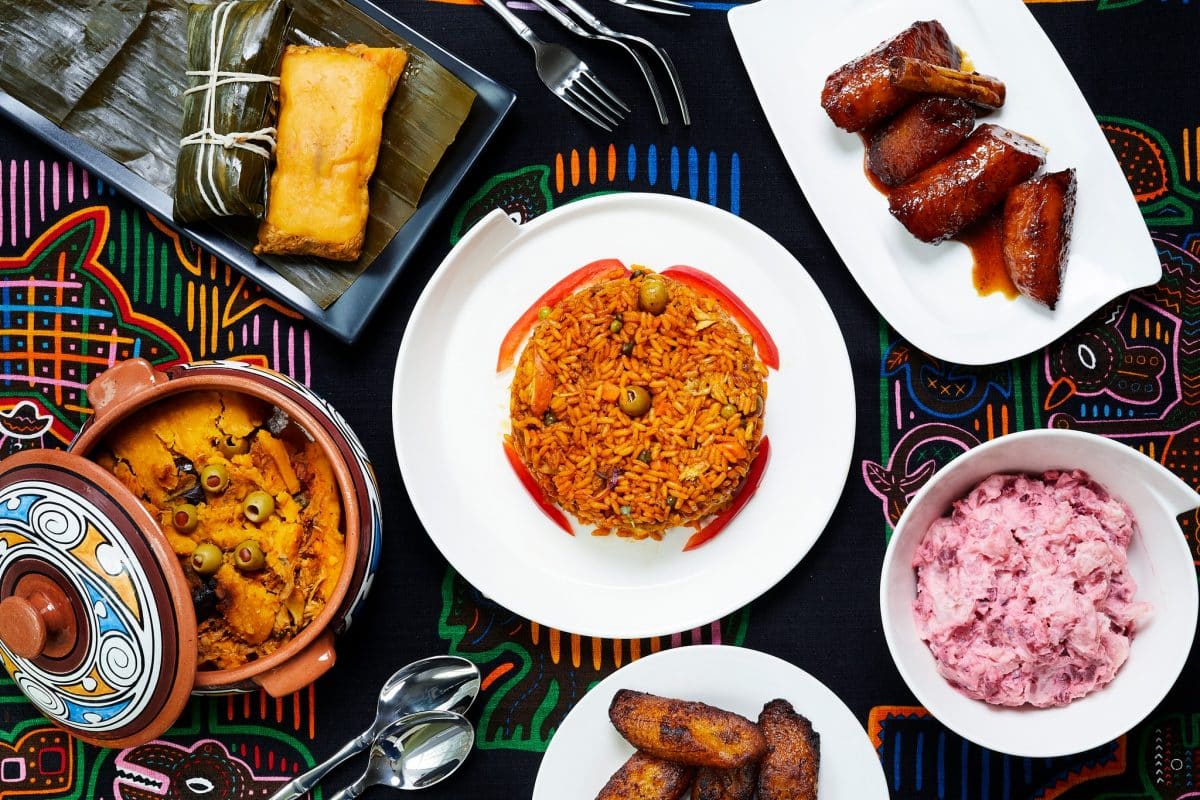Chef Yadira Stamp runs a catering business,
writes cookbooks, a monthly newsletter, and volunteers.
We asked her how she does it all.
In her native Panama, Yadira studied electronics at an all-boys technical high school and dreamed of becoming an astronaut. She earned a degree in Electrical Engineering with a minor in Computer Science and Robotics on a full scholarship in the United States. Yadira credits her father for encouraging her to pursue her dream, and her mother, who was always giving and volunteering, for teaching her to be humble, to remember her blessings, and to “give back.” After an apprenticeship program at NASA she became a Technical Analyst and Designer of banking systems, traveling the world. She worked in Asia, Central and South America, and Europe for more than two decades. Everywhere she lived, she sought out people in the countryside, sampling the authentic food and culture in the outskirts of the cities. In 2012, Chef Yadira founded Esencias Panameñas in Washington, DC—one of only a handful of Panamanian food businesses in the United States. Esencias Panameñas serves authentic Panamanian cuisine and is the only Panamanian catering company in the USA to offer its food nationwide.
"I just do! I am a very determined person and when I say I am going to do something, I do it and don't come up with excuses or pretext. As for the newsletter, yes, I do it all - I come up with the topics, research and write the content and come up with the trivia questions. "
10% of net sales proceeds from September to December, equaling $1,423, are donated to World Central Kitchen (WCK), to feed the people in Ukraine and in other countries in need.
Ukrainians eat lots of beets, potatoes, and beans. I fell in love with borscht – beet soup. Our Panamanian potato salad is similar to the Russian potato salad – potatoes and beets. A bomb destroyed the warehouse in Ukraine where the food was stored, and we had to work with what we retrieved from rubble until we got more supplies. My small contribution was to teach the team to make hojaldres — a flat fried bread that we eat in Panama for breakfast — and onion stew. I also taught them to prepare salo (cured fatback) a product that is important because it can withstand long-term storage.
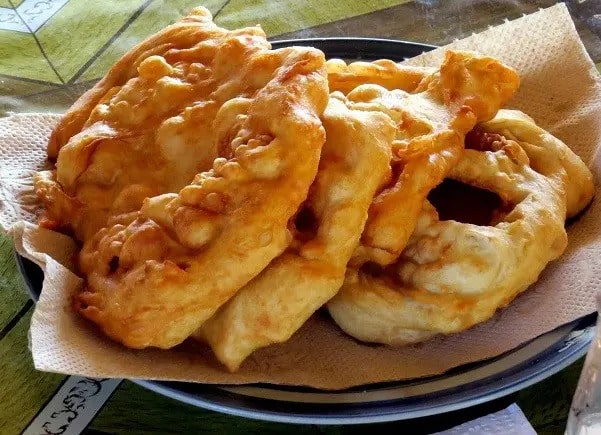
180 hours volunteered, of which 150 were spent in Ukraine.
I joined World Central Kitchen (WCK) back in 2017 in the aftermath of Hurricane Maria in the northeastern Carribean. At the time I still had the restaurant in DC open and I could not just shut down. So I held various events at the restaurant (sip and paint, salsa dancing, karaoke, open mic) and donated 100% of the proceeds of the events and 10% of the proceeds of the restaurant. Once I closed the restaurant in 2019, I promised myself that I would volunteer in person in the future rather than just make a financial contribution. There are about 1,000 cities that have volunteers in WCK, and there were 200 volunteers in my group. I was the first Black woman who volunteered overseas with WCK. I stayed in Rzeszow, about an hour from the kitchen. Volunteers are responsible for their own housing and transportation but I stayed with a group who shared expenses.
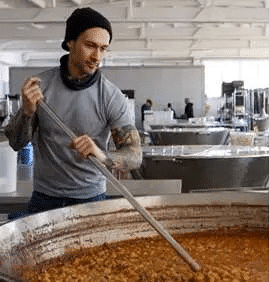
I worked in the back of house; did not deal with the people because I don’t speak Polish or Ukrainian.
As part of the volunteer team, I helped prepare hundreds of thousands of hot, fresh meals each day that were served to those who were close by and able to pick them up. I also packed large grocery kits with ingredients to feed a family for about a week. These were loaded onto trucks to deliver to 1,000 cities and towns inside Ukraine, to people that were afraid to go outside– making sure they had food to eat.
The pots in the kitchen were humongous; some were large enough that I could lay in them like a bed. It was impossible to use regular cooking utensils. Instead, we used paddles to stir the pots. In fact, some pots required several people to hold and stir.
As part of the volunteer team, I helped prepare hundreds of thousands of hot, fresh meals each day that were served to those that were close by and able to come by and pick them up. I also packed large grocery kits with ingredients to feed a family for about a week. These were loaded onto trucks to deliver to 1,000 cities and towns inside Ukraine, to people that were afraid to go outside– making sure they had food to eat.
The pots in the kitchen were humongous; some were large enough that I could lay in them like a bed. It was impossible to use regular cooking utensils. Instead, we used paddles to stir the pots. In fact, some pots required several people to hold and stir.
I have been working out of a commercial shared kitchen for my catering business, and my goal is to find another location to resume the restaurant. I miss the personal interaction with customers.
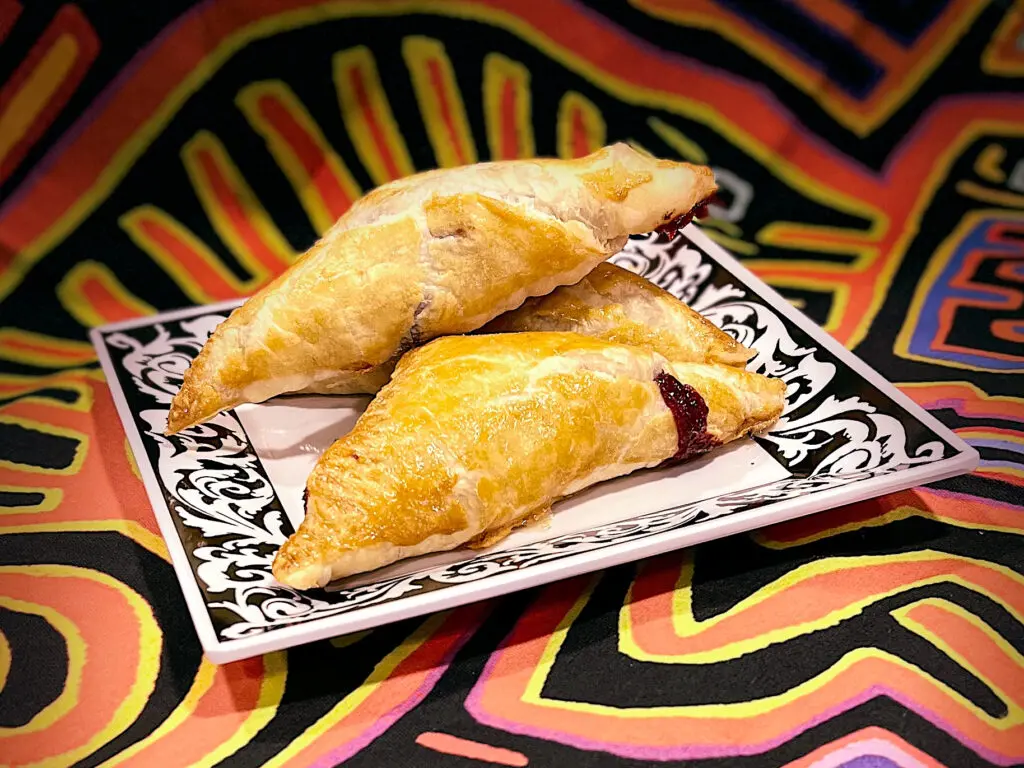
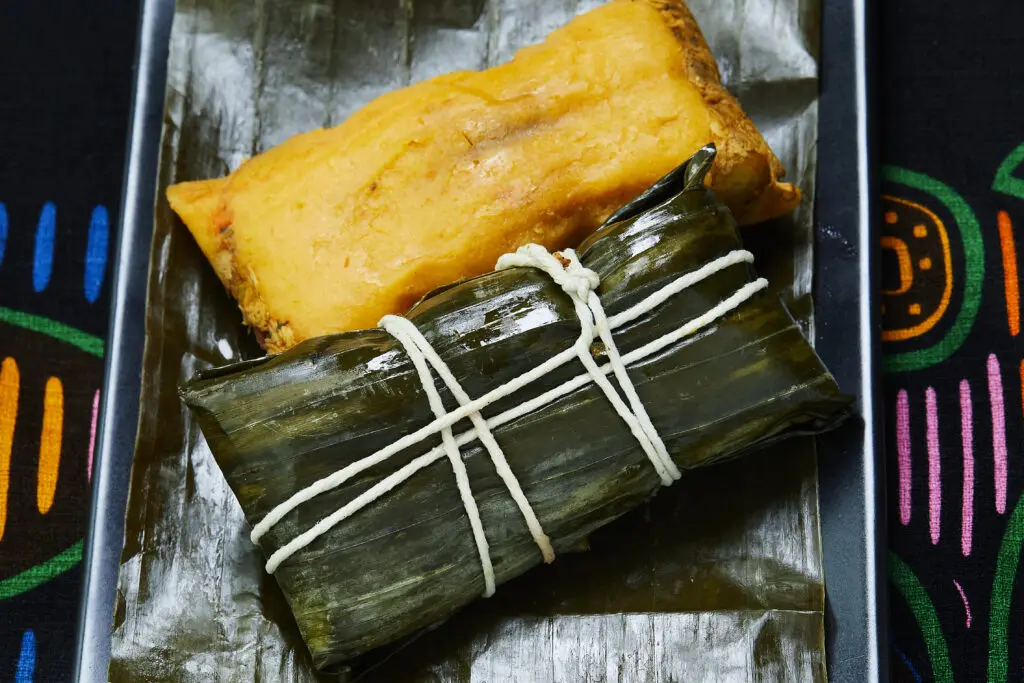
I am currently working on a second cookbook that will include more Panamanian dishes to complement the most requested recipes in my book, Panama on A Plate.

Many thought I was crazy for making the trip; others thought I was courageous. I am neither! I just believe in paying it forward and helping whenever and however I can.
You do not have to join an organization to help others; neither do you have to travel abroad. You can channel the spirit of helping and bringing hope and dignity to your neighbors, one plate of food at a time.
Please donate to World Central Kitchen to help them continue serving hundreds of thousands of meals to those in need every day. ![]()
